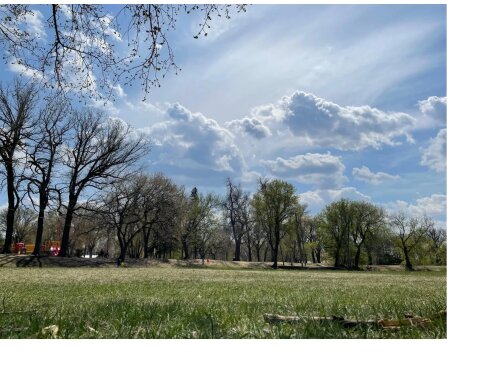Best Housing, Construction & Development Lawyers in Canada
Share your needs with us, get contacted by law firms.
Free. Takes 2 min.
Free Guide to Hiring a Real Estate Lawyer
Or refine your search by selecting a city:
List of the best lawyers in Canada
About Housing, Construction & Development Law in Canada
Housing, Construction, and Development Law in Canada encompasses a broad range of legal issues related to residential and commercial real estate projects. This area of law addresses matters such as land use planning, zoning, real estate transactions, construction contracts, property development, and regulatory compliance. Canadian housing laws aim to balance the interests of developers, homeowners, tenants, and municipalities to ensure sustainable growth and development, protect property rights, and promote fair housing practices.
Why You May Need a Lawyer
There are numerous situations where individuals or businesses may require legal help in the field of Housing, Construction & Development. Some common scenarios include:
- Disputes between landlords and tenants over rent, repairs, or lease terms.
- Understanding and negotiating contracts with builders, architects, or developers.
- Navigating zoning laws and obtaining necessary permits for construction projects.
- Resolving issues related to property boundaries or land ownership.
- Addressing construction defects or delays that impact project completion.
- Compliance with environmental regulations affecting development projects.
- Handling financial transactions and disputes in real estate deals.
A lawyer specializing in Housing, Construction & Development can provide valuable guidance and representation in these and other related matters.
Local Laws Overview
In Canada, local laws regarding housing, construction, and development vary by province and municipality, but there are common elements that individuals should be aware of:
- Zoning and Land Use: Zoning bylaws dictate the types of land uses permitted in specific areas, including residential, commercial, or industrial use.
- Building Codes: National and provincial building codes set standards for construction to ensure safety and efficiency.
- Environmental Regulations: Laws protect natural resources and ensure sustainable development by controlling activities that impact the environment.
- Tenant Rights: Residential Tenancy Acts govern the relationship between landlords and tenants, outlining rights and obligations.
- Contract Law: Construction and development projects involve contracts that must comply with general contract law principles.
- Indigenous Land Claims: Development on or near Indigenous lands must consider land claims and rights under treaties and the Constitution Act.
Understanding these laws is crucial for anyone involved in housing, construction, and development projects in Canada.
Frequently Asked Questions
What are my rights as a tenant in Canada?
Your rights vary by province but generally include the right to a safe and habitable living environment, protection against unlawful rent increases, and processes for eviction.
How can I resolve a dispute with my contractor?
Dispute resolution can involve direct negotiation, mediation, arbitration, or litigation, depending on the contract terms and severity of the issue.
Do I need a permit for a home renovation?
Most significant home renovations require permits. Check with your local municipality to understand specific requirements and obtain permission.
What happens if a construction project is delayed?
Delays can lead to contractual disputes. Review your contract terms regarding penalties or extensions and consider legal advice if needed.
How do zoning laws affect my property development plans?
Zoning laws determine what activities are permitted on your property. It’s essential to review zoning bylaws and apply for any necessary variances.
What steps are involved in acquiring land for development?
Typical steps include site assessment, due diligence, legal review, negotiations, and obtaining necessary approvals from local authorities.
Are there subsidies or incentives for green building practices?
Yes, several provincial and federal programs offer incentives for sustainable construction practices, including grants and tax credits.
What legal considerations are there for buying a condo?
Review the condominium declarations, bylaws, rules, and financial statements, and consider legal advice to understand your rights and obligations.
How can I ensure compliance with building codes?
Hire qualified professionals, ensure thorough planning and regular inspection, and keep abreast of code updates to maintain compliance.
What are my options if a new development affects my property value?
Contact local authorities to understand impacted zoning changes, attend public hearings, and engage legal counsel if necessary.
Additional Resources
Here are some resources to consider:
- Canada Mortgage and Housing Corporation (CMHC): Offers housing-related information for Canadians.
- Provincial Landlord and Tenant Boards: Provide dispute resolution services specific to each province.
- Municipal Planning Departments: Offer advice on zoning and building permits for specific projects.
- The Canadian Real Estate Association: Provides resources for real estate transactions.
- Legal Aid Services: Available in each province, offering free or low-cost legal advice and services.
Next Steps
If you require legal assistance in Housing, Construction & Development, consider the following steps:
- Identify the specific legal needs related to your situation.
- Research and contact local lawyers specializing in housing and construction law.
- Prepare relevant documents and information for a consultation.
- Consider mediation or alternative dispute resolution methods, if appropriate.
- Stay informed about your rights and responsibilities throughout the process.
- Consult additional resources or government services if needed.
Taking informed, proactive steps can help you navigate the complexities of Housing, Construction & Development in Canada effectively.
Lawzana helps you find the best lawyers and law firms in Canada through a curated and pre-screened list of qualified legal professionals. Our platform offers rankings and detailed profiles of attorneys and law firms, allowing you to compare based on practice areas, including Housing, Construction & Development, experience, and client feedback.
Each profile includes a description of the firm's areas of practice, client reviews, team members and partners, year of establishment, spoken languages, office locations, contact information, social media presence, and any published articles or resources. Most firms on our platform speak English and are experienced in both local and international legal matters.
Get a quote from top-rated law firms in Canada — quickly, securely, and without unnecessary hassle.
Disclaimer:
The information provided on this page is for general informational purposes only and does not constitute legal advice. While we strive to ensure the accuracy and relevance of the content, legal information may change over time, and interpretations of the law can vary. You should always consult with a qualified legal professional for advice specific to your situation.
We disclaim all liability for actions taken or not taken based on the content of this page. If you believe any information is incorrect or outdated, please contact us, and we will review and update it where appropriate.
Browse housing, construction & development law firms by city in Canada
Refine your search by selecting a city.















